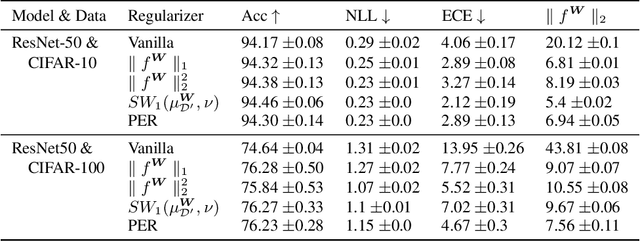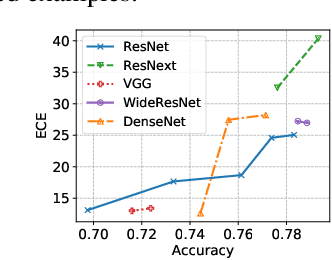Deep Learning Requires Explicit Regularization for Reliable Predictive Probability
Paper and Code
Jun 11, 2020



From the statistical learning perspective, complexity control via explicit regularization is a necessity for improving the generalization of over-parameterized models, which deters the memorization of intricate patterns existing only in the training data. However, the impressive generalization performance of over-parameterized neural networks with only implicit regularization challenges this traditional role of explicit regularization. Furthermore, explicit regularization does not prevent neural networks from memorizing unnatural patterns, such as random labels, that cannot be generalized. In this work, we revisit the role and importance of explicit regularization methods for generalizing the predictive probability, not just the generalization of the 0-1 loss. Specifically, we present extensive empirical evidence showing the versatility of explicit regularization techniques on improving the reliability of the predictive probability, which enables better uncertainty representation and prevents the overconfidence problem. Our findings present a new direction to improve the predictive probability quality of deterministic neural networks, unlike the mainstream of approaches concentrates on building stochastic representation with Bayesian neural networks, ensemble methods, and hybrid models.
 Add to Chrome
Add to Chrome Add to Firefox
Add to Firefox Add to Edge
Add to Edge